Pulitzer Prize for Fiction
The Pulitzer Prize for Fiction is one of the seven American Pulitzer Prizes that are annually awarded for Letters, Drama, and Music. It recognizes distinguished fiction by an American author, preferably dealing with American life, published during the preceding calendar year. As the Pulitzer Prize for the Novel, it was one of the original Pulitzers; the program was inaugurated in 1917 with seven prizes, four of which were awarded that year.[1] (No Novel prize was awarded in 1917; the first was awarded in 1918.)[2]
| Pulitzer Prize |
|---|
.png.webp) |
Joseph Pulitzer
|
| Journalism |
| Reporting Writing Photography Other Former |
|
| Special Citations and Awards |
Finalists have been announced since 1980, usually a total of three.[2]
Winners
In 31 years under the "Novel" name, the prize was awarded 27 times; in its first 69 years to 2016 under the "Fiction" name, 62 times. There have been 11 years during which no title received the award. It has never been shared by two authors.[2] Four writers have won two prizes each in the Fiction category: Booth Tarkington, William Faulkner, John Updike, and Colson Whitehead.
1910s to 1970s
1980s to 2020s
Entries from this point on includes the finalists listed for each year.
Repeat winners
Four writers to date have won the Pulitzer Prize for Fiction multiple times, one nominally in the novel category and two in the general fiction category. Ernest Hemingway was selected by the 1941 and 1953 juries, but the former was overturned and no 1941 award was given.[lower-alpha 3]
- Booth Tarkington, 1919, 1922
- William Faulkner, 1955, 1963 (awarded posthumously)
- John Updike, 1982, 1991
- Colson Whitehead, 2017, 2020
Notes
- First-time fiction juror Stuart P. Sherman initially recommended Joseph Hergesheimer's Java Head for the award; he rescinded his recommendation when the other jurors informed him that the word "whole" in a key phrase of the original description of the award, "the whole atmosphere of American life", had been subsequently been changed to "wholesome".[3]
- Lewis declined the prize.[4]
- The fiction jury had recommended the 1941 award be shared by The Trees by Conrad Richter and The Ox-Bow Incident by Walter Van Tilburg Clark. While the Pulitzer Board initially intended to give the award to the jury's third choice, Ernest Hemingway's For Whom the Bell Tolls, the president of Columbia University, Nicholas Murray Butler, persuaded the board to reverse its judgment because he deemed the novel offensive, and no award was given that year.[3][5]
- The fiction jury had recommended the 1941 award be shared by The Trees by Conrad Richter and The Ox-Bow Incident by Walter Van Tilburg Clark. While the Pulitzer Board initially intended to give the award to the jury's third choice, Ernest Hemingway's For Whom the Bell Tolls, the president of Columbia University, Nicholas Murray Butler, persuaded the board to reverse its judgment because he deemed the novel offensive, and no award was given that year.[3][5]
- The two-man fiction jury could not agree on a single book to recommend to the Advisory Board, so no award was given; among the books recommended by juror Eric P. Kelly were Ramey by Jack D. Ferris, The Sands of Karakorum by James Ullman, The Adventures of Augie March by Saul Bellow, and The Four Lives of Mundy Tolliver by Ben Lucien Burman, while juror Harris F. Fletcher recommended The Street of the Three Friends by Myron Brinig and The Deep Sleep by Wright Morris[3]
- The fiction jury had recommended the 1957 award to Elizabeth Spencer's The Voice at the Back Door, but the Pulitzer board, which has sole discretion for awarding the prize, made no award.[5]
- "Among the books the judges most seriously considered were the following: (1) Norman Fruchter's Coat Upon a Stick…, (2) May Sarton's novella Joanna and Ulysses…, (3) Sumner Locke Elliott's Careful, He Might Hear You…, [and] (4) John Killens' And Then We Heard the Thunder… If a prize were to be awarded for a 1963 novel we felt these to be the most serious candidates." However, the fiction jury ultimately recommended that no award be given because "no one of them imposes itself upon us as demanding recognition as 'distinguished fiction'…."[3]
- The three novels the Pulitzer committee put forth for consideration to the Pulitzer board were: Losing Battles by Eudora Welty; Mr. Sammler's Planet by Saul Bellow; and The Wheel of Love by Joyce Carol Oates. The board rejected all three and opted for no award.[6]
- The fiction jury had unanimously recommended the 1974 award to Thomas Pynchon's Gravity's Rainbow, but the Pulitzer board, which has sole discretion for awarding the prize, made no award.[5]
- The fiction jury had recommended the 1977 award to Norman MacLean's A River Runs Through It, but the Pulitzer board, which has sole discretion for awarding the prize, made no award. That same year, however, Alex Haley's iconic family saga Roots was awarded a special Pulitzer Prize.[5]
- "A collection of 13 short stories set in small-town Maine that packs a cumulative emotional wallop, bound together by polished prose and by Olive, the title character, blunt, flawed and fascinating."[7]
- "A powerful celebration of life in which a New England father and son, through suffering and joy, transcend their imprisoning lives and offer new ways of perceiving the world and mortality."[8]
- "An inventive investigation of growing up and growing old in the digital age, displaying a big-hearted curiosity about cultural change at warp speed."[9]
- "An exquisitely crafted novel that carries the reader on an adventuresome journey into the depths of totalitarian North Korea and into the most intimate spaces of the human heart."[11]
- "A beautifully written coming-of-age novel with exquisitely drawn characters that follows a grieving boy's entanglement with a small famous painting that has eluded destruction, a book that stimulates the mind and touches the heart."[12]
- "An imaginative and intricate novel inspired by the horrors of World War II and written in short, elegant chapters that explore human nature and the contradictory power of technology."[13]
- "A layered immigrant tale told in the wry, confessional voice of a "man of two minds" -- and two countries, Vietnam and the United States."[14]
- "For a smart melding of realism and allegory that combines the violence of slavery and the drama of escape in a myth that speaks to contemporary America."[15]
- "A generous book, musical in its prose and expansive in its structure and range, about growing older and the essential nature of love."[16]
- "An ingeniously structured narrative that branches and canopies like the trees at the core of the story whose wonder and connectivity echo those of the humans living amongst them."[17]
- "A spare and devastating exploration of abuse at a reform school in Jim Crow-era Florida that is ultimately a powerful tale of human perseverance, dignity and redemption."[18]
References
- "1917 Pulitzer Prizes". The Pulitzer Prizes (pulitzer.org). Retrieved 2018-04-19.
- "Pulitzer Prize for the Novel". The Pulitzer Prizes (pulitzer.org). Retrieved 2008-08-19.
- Hohenberg, John (1974). The Pulitzer Prizes: A History of the Awards in Books, Drama, Music, and Journalism, Based on the Private Files Over Six Decades. New York: Columbia University Press. pp. 55, 143–44, 198, 204, 258. ISBN 0231038879.
- McDowell, Edwin (1984-05-11). "Publishing: Pulitzer Controversies". The New York Times. ISSN 0362-4331. Retrieved 2018-02-15.
- McDowell, Edwin. "PUBLISHING: PULITZER CONTROVERSIES". The New York Times. Retrieved 2018-04-19.
[I]n 1941, after both the jury and the board voted to give the fiction prize to Ernest Hemingway's For Whom the Bell Tolls, Nicholas Murray Butler, president of Columbia and ex-officio chairman of the board, forced the board to change its vote because he found the book offensive.
- Fischer, Heinz Dietrich; Fischer, Erika J. (1997). Novel/Fiction Awards 1917–1994: From Pearl S. Buck and Margaret Mitchell to Ernest Hemingway and John Updike. The Pulitzer Prize Archive. 10 (in part D, "Belles Lettres"). München: K.G. Saur. pp. LX–LXI. ISBN 9783110972115. OCLC 811400780.
- "2009 Pulitzer Prize Winners & Finalists". The Pulitzer Prizes (pulitzer.org). Retrieved 14 January 2021.
- "2010 Pulitzer Prize Winners & Finalists". The Pulitzer Prizes (pulitzer.org). Retrieved 14 January 2021.
- "2011 Pulitzer Prize Winners & Finalists". The Pulitzer Prizes (pulitzer.org). Retrieved 14 January 2021.
- "2012 Pulitzer Prize Winners & Finalists". The Pulitzer Prizes (pulitzer.org). Retrieved 24 December 2017.
- "2013 Pulitzer Prize Winners & Finalists". The Pulitzer Prizes (pulitzer.org). Retrieved 14 January 2021.
- "2014 Pulitzer Prize Winners & Finalists". The Pulitzer Prizes (pulitzer.org). Retrieved 14 January 2021.
- "2015 Pulitzer Prize Winners & Finalists". The Pulitzer Prizes (pulitzer.org). Retrieved 14 January 2021.
- "2016 Pulitzer Prize Winners & Finalists". The Pulitzer Prizes (pulitzer.org). Retrieved 14 January 2021.
- "2017 Pulitzer Prize Winners & Finalists". The Pulitzer Prizes (pulitzer.org). Retrieved 14 January 2021.
- "2018 Pulitzer Prize Winners & Finalists". The Pulitzer Prizes (pulitzer.org). Retrieved 14 January 2021.
- "2019 Pulitzer Prize Winners & Finalists". The Pulitzer Prizes (pulitzer.org). Retrieved 14 January 2021.
- "2020 Pulitzer Prize Winners & Finalists". The Pulitzer Prizes (pulitzer.org). Retrieved 14 January 2021.
External links
| Wikimedia Commons has media related to Pulitzer Prize for Fiction winners. |
| Wikimedia Commons has media related to Pulitzer Prize for the Novel winners. |
- Official website for Pulitzer Prize: for the Novel and for Fiction
- The Pulitzer Prize Thumbnails Project
- Michael's Cunningham's "Letter from the Pulitzer Fiction Jury: What Really Happened This Year," The New Yorker — Part One (July 9, 2012) and Part Two (July 10, 2012)
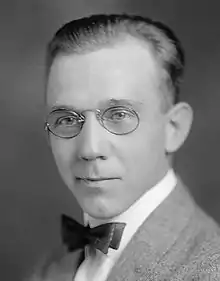
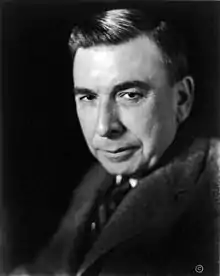
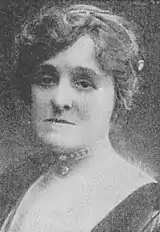

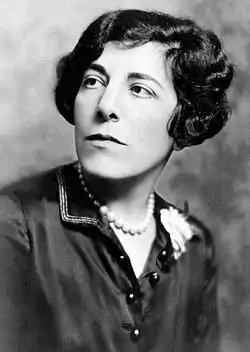
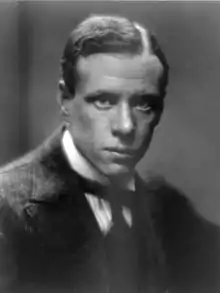

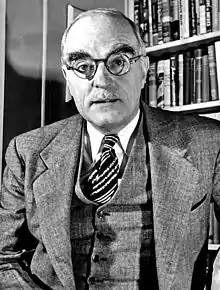

.jpg.webp)
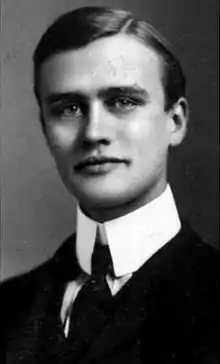

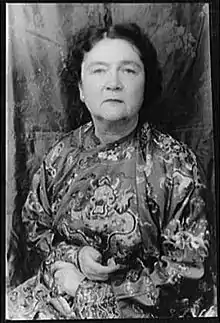
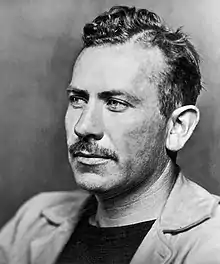
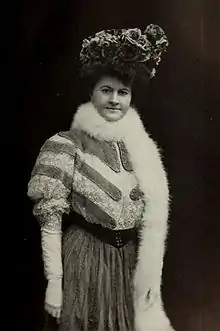
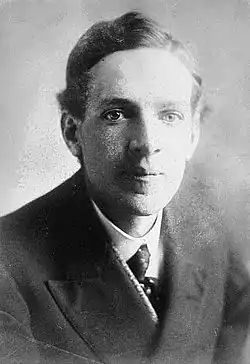

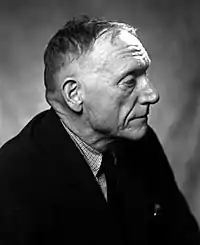

.jpg.webp)
.jpg.webp)

.jpg.webp)
.jpg.webp)

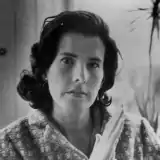
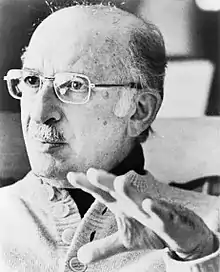
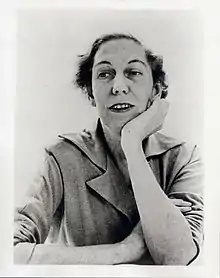
.jpg.webp)
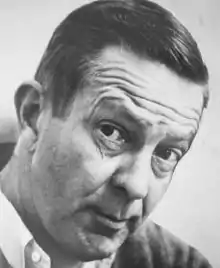
.jpg.webp)
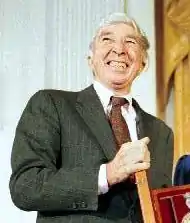
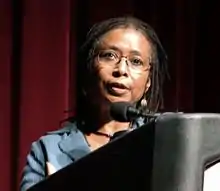




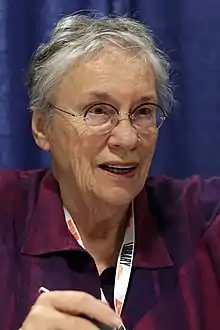

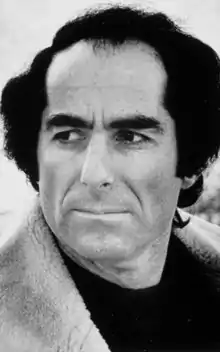

.png.webp)





.jpg.webp)
.jpg.webp)



.jpg.webp)



.jpg.webp)